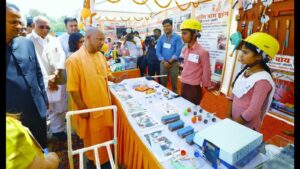Chandigarh: Rare disease patients at PGIMER also fighting long wait for treatment

Over 190 patients suffering from rare diseases have been waiting in desperation for six months, hoping for grants under the National Policy for Rare Diseases (NPRD) to begin their urgent treatments at Post Graduate Institute of Medical Education and Research (PGIMER).
 ₹50 lakh to rare disease patients after their application is approved by the Centre of Excellence (COE) committee for Rare Diseases. PGIMER is one of 12 such centres in the country, catering to patients from across the northern region. (Shutterstock)” title=”Under the NPRD, the Union ministry of health and family welfare provides a one-time grant of ₹50 lakh to rare disease patients after their application is approved by the Centre of Excellence (COE) committee for Rare Diseases. PGIMER is one of 12 such centres in the country, catering to patients from across the northern region. (Shutterstock)” />
₹50 lakh to rare disease patients after their application is approved by the Centre of Excellence (COE) committee for Rare Diseases. PGIMER is one of 12 such centres in the country, catering to patients from across the northern region. (Shutterstock)” title=”Under the NPRD, the Union ministry of health and family welfare provides a one-time grant of ₹50 lakh to rare disease patients after their application is approved by the Centre of Excellence (COE) committee for Rare Diseases. PGIMER is one of 12 such centres in the country, catering to patients from across the northern region. (Shutterstock)” />Already suffering from fragile health, these patients, several of them children, are also battling funding delay by the central government that has halted their desperately needed treatment.
Under the NPRD, the Union ministry of health and family welfare provides a one-time grant of ₹50 lakh to rare disease patients after their application is approved by the Centre of Excellence (COE) committee for Rare Diseases. PGIMER is one of 12 such centres in the country, catering to patients from across the northern region.
Each of these centres receives a revolving grant from the central government to treat rare disease patients. However, the grant at PGIMER ran out in September 2024, stalling treatments. Ever since, six months have passed, but patients’ wait for funds from the central government continues.
While sources confirmed that PGIMER had received additional funds for rare diseases, Dr Vijay Tadiya, the nodal officer of COE, stated that it had yet to be confirmed and he couldn’t provide further details.
Endless wait for lifeline for 11-year-old
One of these patients is 11-year-old Aymen from Baramulla, Jammu and Kashmir. She suffers from Gaucher disease, a rare genetic disorder. Her father, Abdul Rasheed, applied for the NPRD grant after doctors recommended enzyme replacement therapy, which costs lakhs.
Aymen’s application was taken up by the COE committee at PGIMER on December 23, 2024. Since then, Abdul has been reaching out to PGIMER’s Poor Patient Cell, doctors at the Advanced Paediatric Centre and the COE, but has received no response.
Aymen, like many other rare disease patients, thus remains stuck in an endless wait, unsure when she will receive the treatment that could save her life.
Dr Inusha Panigrahi, a paediatric medicine professor at PGIMER, explained that enzyme replacement therapy for a child weighing 20 kg cost between ₹13-15 lakh for six months, with the expenditure increasing depending on the child’s weight.
Gaucher disease requires lifelong treatment, with annual costs reaching up to ₹1 crore. Dr Panigrahi stressed the importance of timely treatment for such diseases, as delays could worsen the condition.
Waiting queue growing longer
According to PGIMER’s Poor Patient Cell, 193 patients are waiting for the grant to start their treatment.
Since the implementation of NPRD in 2022, 234 patients have benefited from the grant at PGIMER, even as 300 patients had applied. In 2024 alone, 293 patients submitted applications for the grant.
Dr Panigrahi pointed out flaws in the NPRD process, stating that the application procedure was not transparent and patients also faced significant challenges with documentation.
“There is no coordination between the rare disease cell and the doctors, which leads to delays,” she said, suggesting that a WhatsApp group could be created with all relevant stakeholders to help track patient applications and their severity.
Meanwhile, in an effort to help rare disease patients, the health ministry has launched a digital portal for crowdfunding and voluntary donations: https://rarediseases.mohfw.gov.in/Patient_Overview, inviting public to donate directly.




